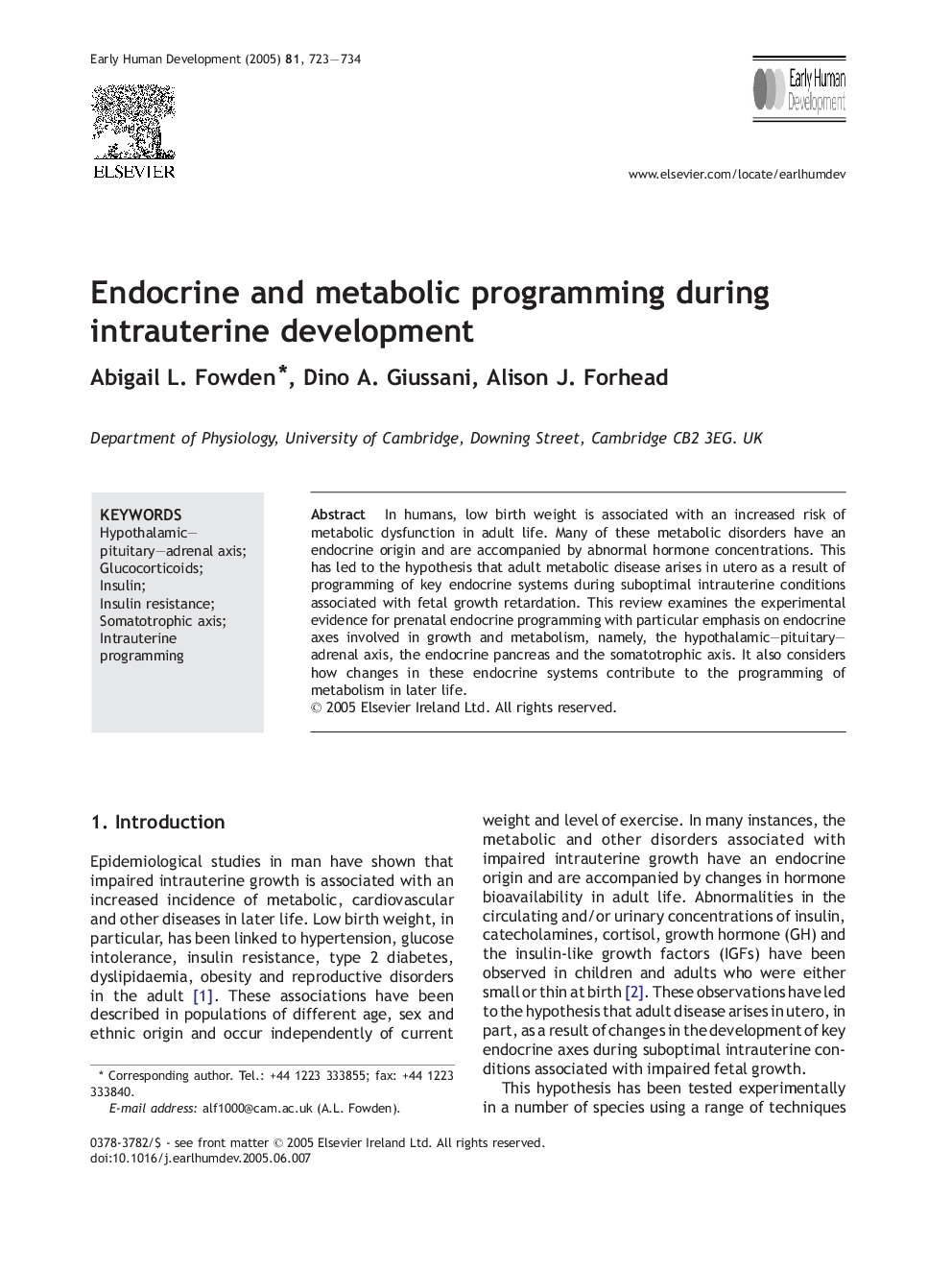| Article ID | Journal | Published Year | Pages | File Type |
|---|---|---|---|---|
| 9318827 | Early Human Development | 2005 | 12 Pages |
Abstract
In humans, low birth weight is associated with an increased risk of metabolic dysfunction in adult life. Many of these metabolic disorders have an endocrine origin and are accompanied by abnormal hormone concentrations. This has led to the hypothesis that adult metabolic disease arises in utero as a result of programming of key endocrine systems during suboptimal intrauterine conditions associated with fetal growth retardation. This review examines the experimental evidence for prenatal endocrine programming with particular emphasis on endocrine axes involved in growth and metabolism, namely, the hypothalamic-pituitary-adrenal axis, the endocrine pancreas and the somatotrophic axis. It also considers how changes in these endocrine systems contribute to the programming of metabolism in later life.
Keywords
Related Topics
Health Sciences
Medicine and Dentistry
Obstetrics, Gynecology and Women's Health
Authors
Abigail L. Fowden, Dino A. Giussani, Alison J. Forhead,
